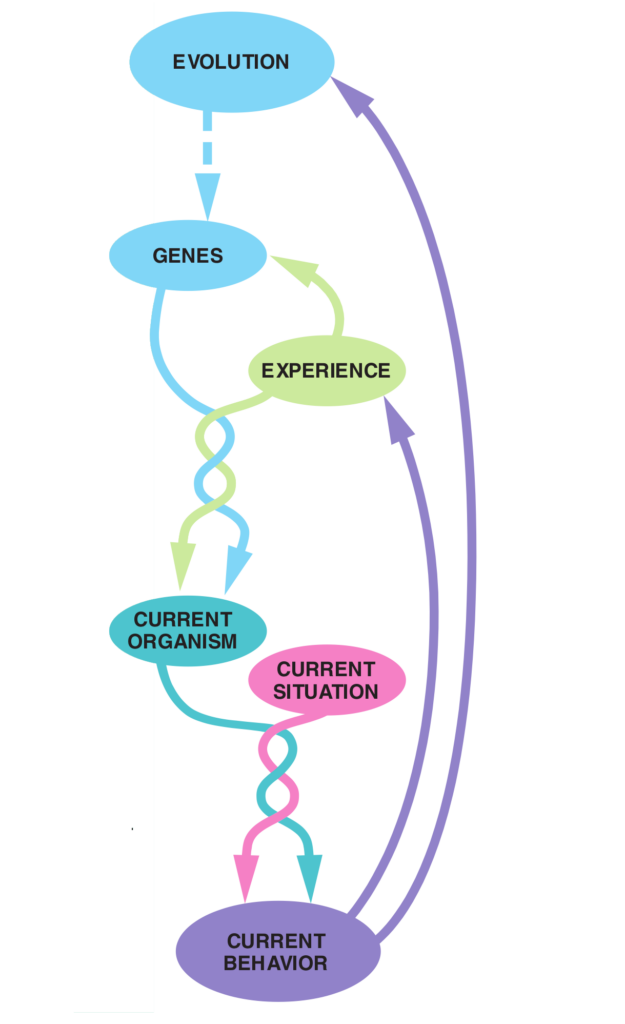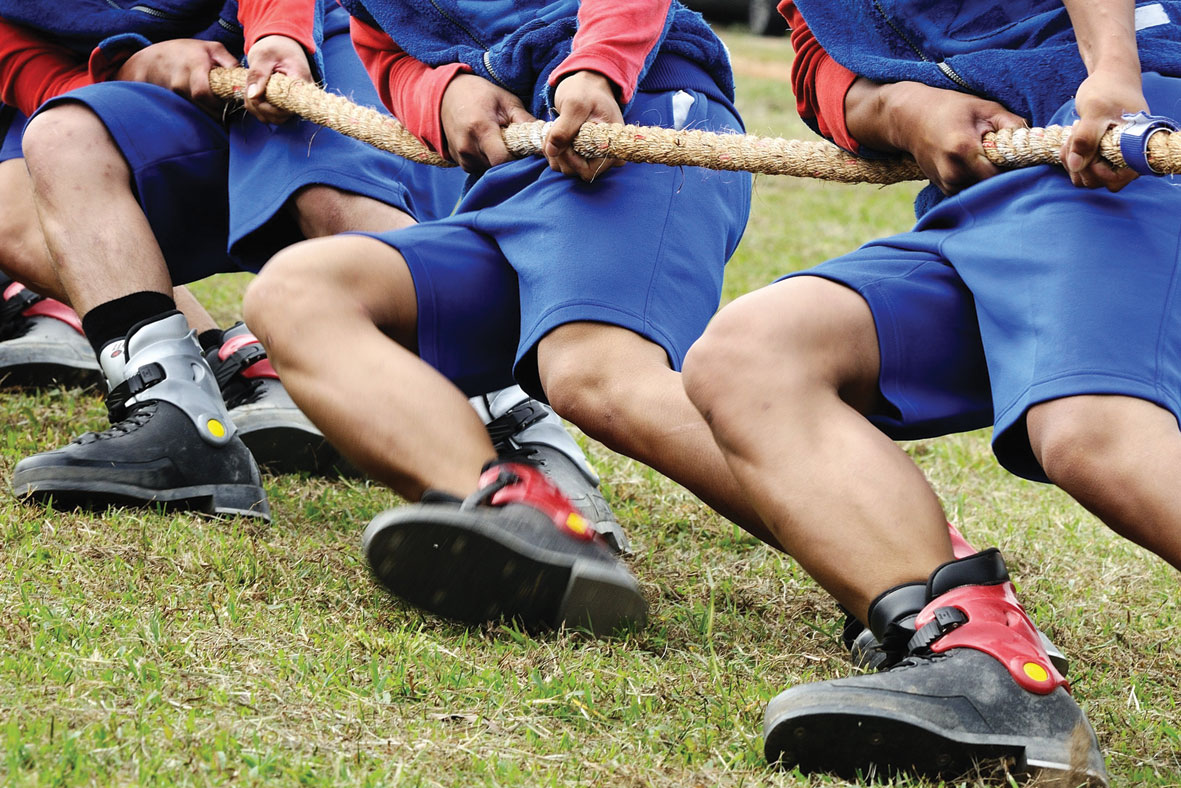Cooperation and competition – a tug-of-war
In human behavior, competition and cooperation go hand in hand but, competition is the more fundamental force in the evolution and behavior of life. Competition was first and cooperation came second. This originates from the natural limitations in necessary resources for all living creatures. The struggle for limited resources in a limited (life) time span can often be viewed as a zero-sum game. The competition for mates and resources is usually at the expense of others. More holistically, the evolution of nature, life and ecology could be viewed as a redirection of energy. Assuming that energy is constant in the universe via the law of conservation of energy, every change is a zero-sum game. The win-win concept, on the other hand, is a convenient moral creation of humans in order to believe there are actions to which everyone benefits. But who is everyone? If everything (not just humans) is taking into account, there is probably no win-win situation possible. In any case, the zero-sum features of competition and evolution have been molding human behavior towards putting their own interest at the forefront. This is especially true for the most primitive parts of human thinking (system 1 thinking). Although more advanced human reasoning (system 2 thinking) also gives room for win-win thinking and therefore departures of zero-sum reasoning, the latter is nevertheless more deeply rooted in the human mind.
Coopetition describes evolutionary interaction better than competition and cooperation separately. This is because often there is no clear distinction possible, by the lack of a single unit of intention. This is true at the intra- as well as extra-personal level. Within persons there is competition between ideas or intentions, but also within friendly social groups (‘ingroups’) such as families, friends and companies, cooperative and competitive behavior reside simultaneously side by side.



